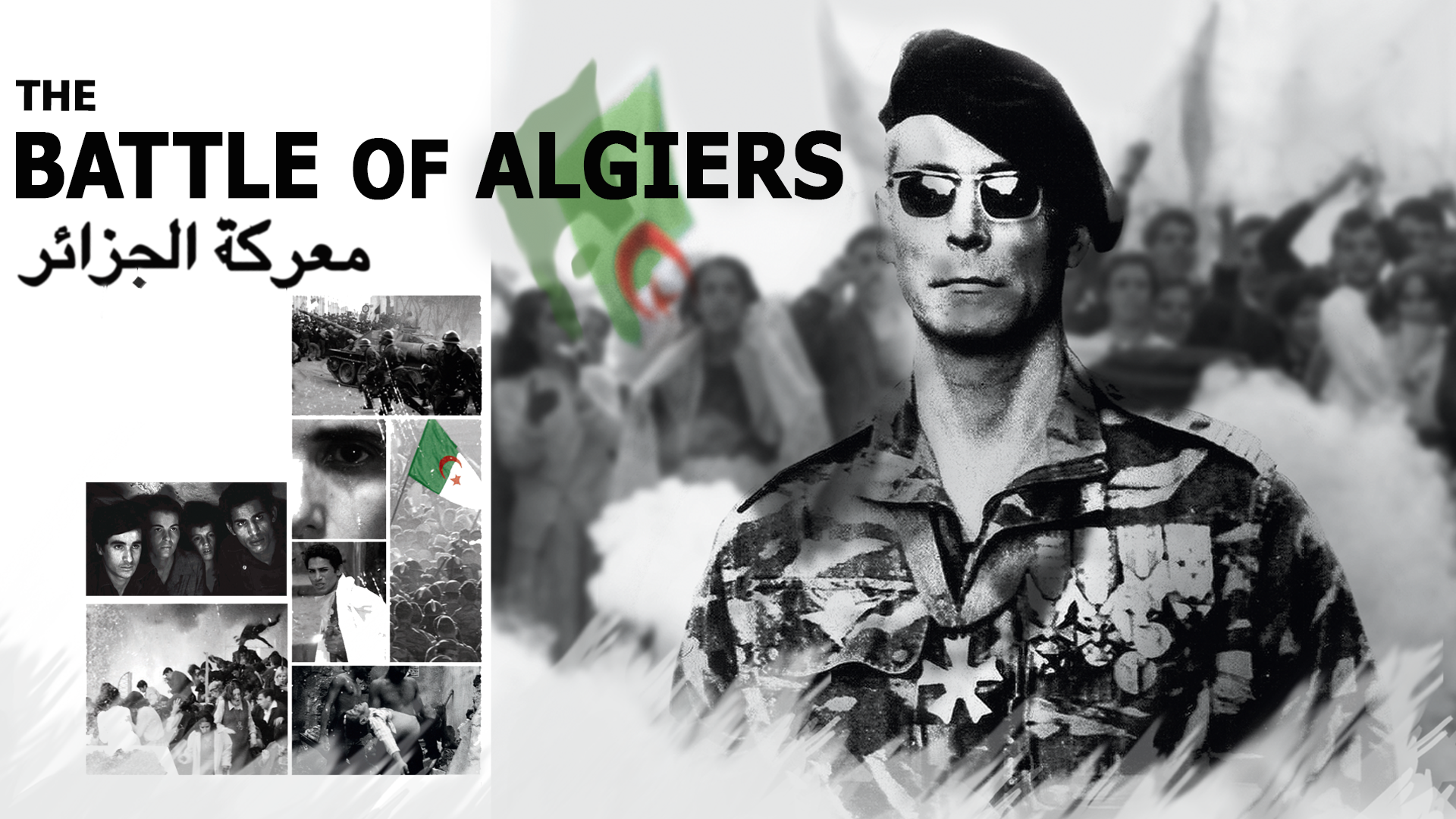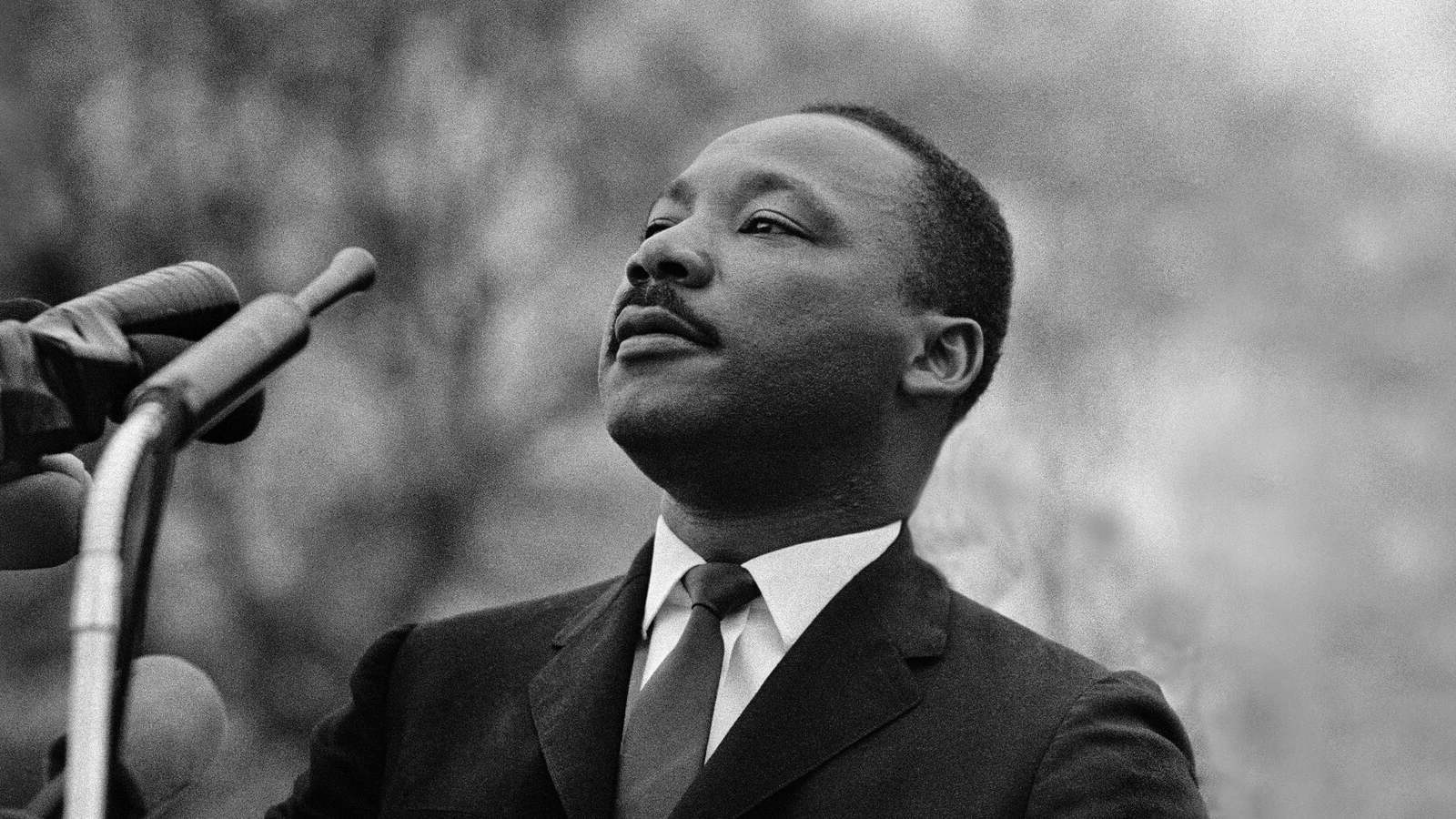
The Battle of Algiers is a powerful and critically acclaimed movie that portrays the events of the Algerian War of Independence. Directed by Gillo Pontecorvo, this film has become a classic in the world of cinema for its intense and realistic depiction of the conflict. Released in 1966, The Battle of Algiers provides a thought-provoking insight into the struggle between the Algerian nationalists and the French colonial forces during the late 1950s. This historical drama offers a gripping narrative that delves into the complexities of terrorism, guerilla warfare, and the fight for freedom. In this article, we will uncover 34 fascinating facts about The Battle of Algiers that shed light on its production, impact, and lasting legacy.
Key Takeaways:
- “The Battle of Algiers” is a groundbreaking movie that brings history to life, showing the struggle for independence in an emotionally charged and thought-provoking way.
- This docudrama film blurs the line between reality and fiction, offering a visually striking and historically accurate portrayal of the Algerian War.
The Battle of Algiers was released in 1966.
Directed by Gillo Pontecorvo, this groundbreaking film depicts the Algerian struggle for independence against French colonial rule.
The film is a docudrama.
Combining documentary-style footage with fictionalized storytelling, The Battle of Algiers blurs the line between reality and fiction.
The movie is shot in a black and white documentary style.
This stylistic choice adds to the film’s realism and enhances its historical accuracy.
The Battle of Algiers is based on true events.
The film dramatizes the guerrilla warfare tactics employed by the National Liberation Front (FLN) during the Algerian War.
The film was initially banned in France.
Due to its controversial portrayal of the French military’s actions in Algeria, the movie faced censorship and was not shown in France until five years after its release.
The Battle of Algiers received three Academy Award nominations.
The film was nominated for Best Director, Best Original Screenplay, and Best Foreign Language Film at the 39th Academy Awards.
The movie is hailed as a masterpiece of political cinema.
It has been praised for its accurate representation of the anti-colonial struggle and its exploration of the ethics of terrorism and counter-terrorism.
The Battle of Algiers was shot on location in Algiers.
The film’s authentic settings and use of non-professional actors contribute to its realistic and immersive atmosphere.
The director used a blend of professional and non-professional actors.
Gillo Pontecorvo cast both experienced actors and local Algerians to achieve a sense of authenticity in the performances.
The Battle of Algiers has a non-linear narrative structure.
The film jumps back and forth in time, allowing the audience to piece together the events of the Algerian War.
The movie is considered a powerful critique of imperialism.
It exposes the brutality and injustices of colonial rule, shedding light on the larger themes of oppression and resistance.
The Battle of Algiers influenced numerous other films and filmmakers.
Its innovative approach to storytelling and its depiction of asymmetrical warfare have inspired generations of directors.
The film has been studied by military strategists.
The Battle of Algiers is renowned for its portrayal of urban guerrilla warfare tactics, making it a valuable resource for those analyzing insurgencies.
The movie received critical acclaim upon its release.
It was praised for its powerful performances, gripping storytelling, and its unflinching portrayal of violence.
The Battle of Algiers was selected for preservation in the United States National Film Registry.
In 2016, the Library of Congress deemed the film “culturally, historically, or aesthetically significant” and preserved it for future generations.
The movie’s score was composed by Ennio Morricone.
The renowned Italian composer created a haunting and evocative soundtrack that complements the film’s tense atmosphere.
The Battle of Algiers was banned in several countries.
Due to its politically charged content, the movie faced censorship and was banned in countries such as France and Belgium.
The film’s reenactments were based on actual events witnessed by the director.
Gillo Pontecorvo drew from his own experiences covering the Algerian War as a journalist to accurately recreate key moments in the film.
The Battle of Algiers was restored and re-released in 2004.
To commemorate the film’s 40th anniversary, a restored version was released, reintroducing it to audiences worldwide.
The movie is often studied in film schools and universities.
Its innovative techniques and its exploration of colonialism and revolution make it a significant work of cinema that continues to be analyzed and discussed.
The Battle of Algiers is considered one of the greatest war films of all time.
Its impact on the genre, its historical accuracy, and its profound exploration of complex themes have solidified its place in cinematic history.
The film was shot on a modest budget.
Despite limited resources, The Battle of Algiers achieved a visually stunning and impactful portrayal of the Algerian War.
The movie has been called a “cinematic textbook.”
Its meticulous attention to detail and its objective depiction of both sides of the conflict have made it a valuable resource for those interested in history and political science.
The Battle of Algiers features a diverse ensemble cast.
The film showcases characters from various social and ethnic backgrounds, highlighting the diversity within the Algerian independence movement.
The movie’s cinematography is visually striking.
The use of handheld cameras and natural lighting techniques adds to the film’s documentary-like feel and intensifies the sense of realism.
The Battle of Algiers was influential in shaping the aesthetics of future political films.
Its gritty and raw portrayal of conflict has set a standard for authenticity in movies dealing with politically charged subject matter.
The movie explores the psychology of both the oppressor and the oppressed.
By delving into the motivations and perspectives of individuals on both sides, The Battle of Algiers offers a nuanced examination of power dynamics.
The Battle of Algiers won the Golden Lion award at the Venice Film Festival.
The film received the highest accolade at one of the most prestigious film festivals in the world, solidifying its status as a cinematic masterpiece.
The movie’s script was heavily researched.
The writers conducted extensive interviews and gathered historical documents to ensure the film’s accuracy and authenticity.
The Battle of Algiers was initially released with limited distribution.
Despite its critical success, the film had a limited release and was not widely seen until years later.
The movie has been the subject of academic analysis and discourse.
Scholars have explored the film’s themes, its visual storytelling techniques, and its impact on the representation of war in cinema.
The Battle of Algiers has been referenced in political debates and discussions.
The film’s examination of resistance and the ethics of violence has made it a point of reference in discourse surrounding social justice movements and armed struggles.
The movie has a lasting legacy in the world of cinema.
The Battle of Algiers continues to be celebrated as a landmark film, revered for its artistic achievements and its enduring relevance.
The Battle of Algiers is a thought-provoking and emotionally charged cinematic experience.
Through its powerful storytelling and its exploration of complex historical events, the film engages viewers and leaves a lasting impression.
Conclusion
In conclusion, The Battle of Algiers is a groundbreaking film that explores the Algeria’s struggle for independence from French colonial rule. Directed by Gillo Pontecorvo, the movie offers a gripping portrayal of the violent conflict between the Algerian National Liberation Front and the French authorities. Through its powerful storytelling and realistic depiction of events, the film offers a thought-provoking commentary on the human cost of imperialism and resistance.The Battle of Algiers continues to be recognized as a masterpiece of political cinema, resonating with audiences and critics alike. Its documentary-style approach, combined with its stunning cinematography and exceptional performances, further elevate the film’s impact and importance. Its timeless themes of oppression, revolution, and the moral complexities of war make it a must-watch for any film enthusiast.Whether you’re interested in history, politics, or simply appreciating great storytelling, The Battle of Algiers is a film that will captivate and provoke thought long after the credits roll.
FAQs
1. What is the genre of The Battle of Algiers?
The Battle of Algiers is primarily classified as a war film and political drama.
2. Is the movie based on a true story?
Yes, The Battle of Algiers is based on real events that took place during the Algerian War of Independence (1954-1962).
3. Who directed The Battle of Algiers?
The film was directed by Italian filmmaker Gillo Pontecorvo.
4. When was the movie released?
The Battle of Algiers was released in 1966.
5. What language is the film in?
The film is primarily in French and Arabic, with English subtitles.
6. Has the movie won any awards?
Yes, The Battle of Algiers received several awards, including the Golden Lion at the 1966 Venice Film Festival.
7. What is the runtime of the film?
The Battle of Algiers has a runtime of approximately 121 minutes.
8. Is the movie suitable for all audiences?
The Battle of Algiers contains intense violence and may not be suitable for young or sensitive viewers.
9. Does the film present a biased perspective?
The film aims to present a balanced portrayal of the conflict, showcasing the perspectives of both the Algerian militants and the French authorities.
10. Can The Battle of Algiers still be relevant today?
Absolutely, the film’s themes of colonialism, resistance, and the ethics of war remain relevant and continue to resonate with audiences.
If you're captivated by the power of cinema to illuminate history and the human experience, don't miss our exploration of other groundbreaking films. Discover the harrowing tale of a French heroine in our dive into "The Passion of Joan of Arc," a silent masterpiece that brings her story to life. For a glimpse into the twilight of Italian aristocracy, check out our fascinating facts about Visconti's sweeping epic "The Leopard." And if you're curious about the gritty realities of insurgency, our article on Colombia's FARC guerrillas offers eye-opening insights into one of the world's longest-running conflicts.
Was this page helpful?
Our commitment to delivering trustworthy and engaging content is at the heart of what we do. Each fact on our site is contributed by real users like you, bringing a wealth of diverse insights and information. To ensure the highest standards of accuracy and reliability, our dedicated editors meticulously review each submission. This process guarantees that the facts we share are not only fascinating but also credible. Trust in our commitment to quality and authenticity as you explore and learn with us.


